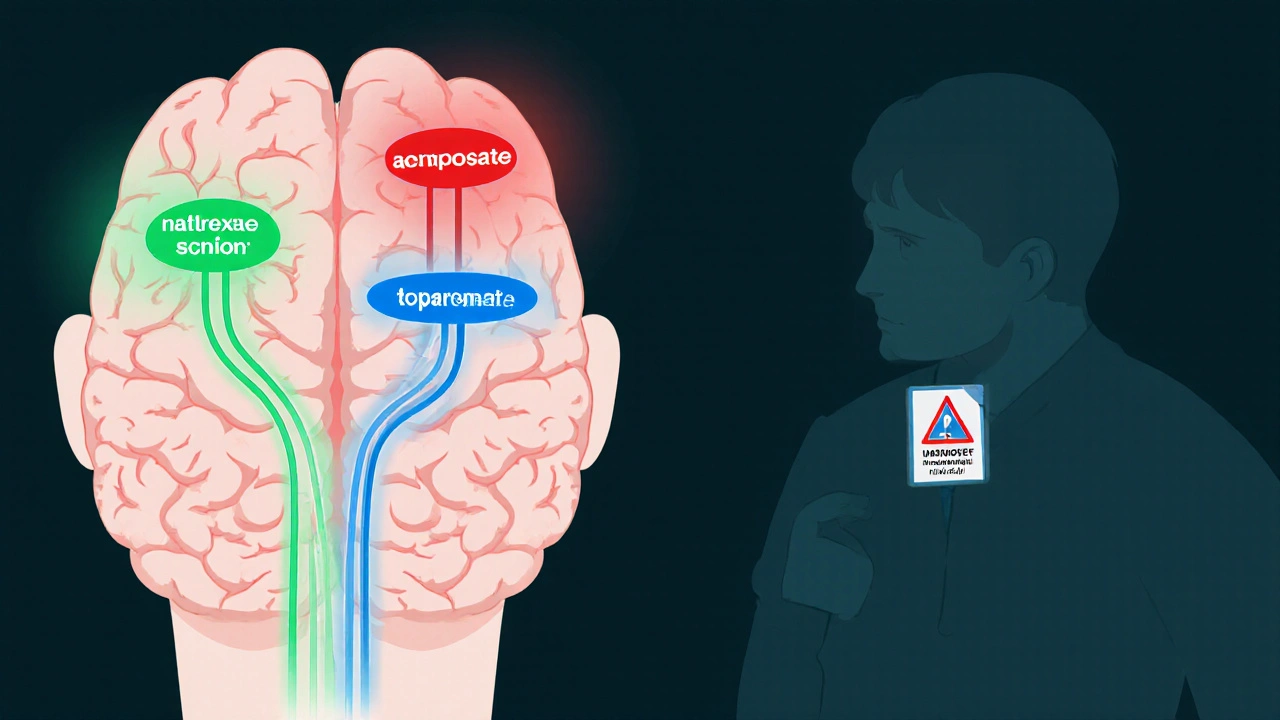Discover the top Antabuse competitor drugs used today for alcohol dependence-naltrexone, acamprosate, and topiramate-and how they compare in effectiveness, safety, and ease of use.
Alcohol Dependence Treatment: What Works and How to Start
If you or someone you know is stuck in a cycle of drinking, the first step isn’t shame—it’s figuring out what help actually does. Alcohol dependence isn’t just about willpower; it’s a medical condition that needs proper care. Below you’ll find clear steps you can take right now, plus tips for picking a program that fits your life.
Quick Overview of Treatment Options
Detox and medically‑supervised withdrawal: Stopping alcohol cold turkey can be dangerous. A short stay in a detox center lets doctors monitor symptoms like tremors or seizures and give meds to keep you safe.
Therapy & counseling: Cognitive‑behavioral therapy (CBT) helps you spot triggers, change drinking patterns, and build new coping skills. One‑on‑one sessions or group counseling work well together.
Medication: FDA‑approved drugs such as naltrexone, acamprosate, and disulfiram can cut cravings or make alcohol taste bad. A doctor will match the right pill to your health profile.
Support groups: 12‑step meetings (AA) or non‑12‑step fellowships give peer accountability. Regular attendance often predicts longer sobriety.
How to Choose the Right Program for You
Start by asking yourself three quick questions: Do you need a safe place to detox? Can you attend daily therapy? Are you comfortable with group settings?
If you’ve never been hospitalized, an outpatient detox might be enough—just make sure someone can watch over you. If you’ve tried quitting before and relapsed quickly, an inpatient rehab (usually 28‑30 days) gives structure, meals, and a drug‑free environment.
Check insurance coverage early; many plans cover at least part of the stay. Look for accredited facilities—look for JCAHO or CARF accreditation on their website. Read reviews from former patients to gauge how supportive staff are.
Don’t overlook aftercare. A solid sober‑living arrangement, regular check‑ins with a therapist, and continued group meetings dramatically lower the chance of slipping back.
Finally, trust your gut. If a center feels too pushy or disorganized, move on. Recovery is personal; the right fit makes all the difference.
Bottom line: Alcohol dependence treatment isn’t one‑size‑fits‑all. Combine safe detox, evidence‑based therapy, appropriate meds, and ongoing support for the best chance at lasting sobriety. Ready to take the next step? Reach out to a local health provider today and start mapping your path to a healthier life.
Discover effective alternatives to Antabuse for managing alcohol dependence. This article delves into six distinct options, weighing the advantages and shortcomings of each. Gain insights into how these alternatives operate, their practical implications, and how they can align with various treatment goals. Whether you're seeking better outcomes, fewer side effects, or simply curious about different methods, this comprehensive guide offers a detailed exploration.


